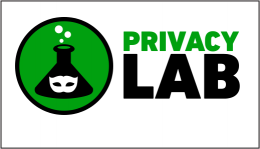Home
Use our global calendar of privacy events to locate an event near you.
FILTER BY

In the digital world in which we now live, information is a very highly valued commodity. Safeguarding that information, therefore, has become a top priority.
RSA Conference’s mission is to connect you with the people and insights that will empower you to stay ahead of cyber threats. We do this through our events in the US, the EMEA region and the Asia-Pacific region and through our digital outreach. However you access our community, RSA Conference is your best resource for exchanging ideas, learning the latest trends and finding the answers you are looking for.
Always relevant. Always fresh. Always on.
Our conferences draw nearly 30,000 attendees per year, making us the world’s largest info security event. However, the real value of RSA Conference lies not in our size, but in the valuable content we provide and our commitment to finding new industry voices and new ways for our community to feel inspired and engaged.
Be better prepared for future challenges. Connect with RSA Conference today—the go-to resource for the people and ideas that matter most to the industry, your organization and your career.

Join us for a discussion on kids, connected toys and devices, and privacy.
The debate over the relationship between children and technology has been heated and complex. Issues ranging from the right amount of screen time, online privacy, safety and security have occupied policymakers, parents, and advocates for quite some time. New technologies such as dolls that listen and talk, interactive teddy bears, smart home devices, virtual reality, and artificial intelligence have intensified the debate. As new types of data are collected, these technologies will generate both opportunities for interactive play and education, but also new challenges.
Security concerns around outsiders accessing children’s information or accessing a parent’s home are already in the news. The nature of dolls and toys that become a child’s best friend – that can discuss intimate information, provide advice, and be a buddy – are raising questions about the right balance. When artificial intelligence enters the mix, the debate will only be intensified.
• • •
This talk is free and open to the public though space is limited. Doors open at 9:30 am for networking.
Follow the conversation on Twitter via the hashtag #InternetOfToys and follow@csmpasscode, @FOSI, and @futureofprivacy.
By registering for the event, you are also signing up for Passcode’s email newsletter. If you wish to unsubscribe, you may do so at any time.

WEBINAR
As agreement on a new EU-U.S. Privacy Shield framework edges closer by the day, one of the key compliance areas that companies need to address is vendor risk management. In order to address European concerns, the new framework includes far stricter requirements on companies contracting with third parties. Companies are required to contract with partners that can process data consistent with the Privacy Shield framework and will be responsible for vendors acting on their behalf.
With many global companies working with thousands of vendors to process HR and customer data, this webinar will tackle important questions such as:
How can they take a prioritized approach to risk management?
What are current best practices?
How can they ensure compliance with Privacy Shield within the projected timelines?
Register NOW for this webinar to review strategies for managing this key compliance obligation alongside updates on the latest state of play with the EU-U.S. Privacy Shield negotiations!
*Can’t make the webinar? Register anyway! We’ll send you a followup email with the slides and recording after the webinar!*

The Data Quality Campaign, in partnership with Senator Patty Murray and Senator Orrin Hatch, cordially invites you to join us for a bipartisan briefing on the Hill about strategies for making data work for students and a discussion among leading education policy experts on the specific education data questions facing policymakers and practitioners today. Refreshments will be provided.
Remarks by:
Aimee Rogstad Guidera, President of the Data Quality Campaign
Panelists include:
Amanda Karhuse, Director of Advocacy at The National Association of Secondary School Principals
Natasha Ushomirsky, Director of K-12 Policy Development at The Education Trust
Claire Voorhees, Director for K-12 Reform at The Foundation for Excellence in Education
Congressional offices and the general public are invited to attend this discussion.

Join the Software & Information Industry Association for a free public webinar to discuss new and practical ways to think about privacy issues!
How can privacy be better protected in an age of robots, artificial intelligence, and ubiquitous data collection? What principles should guide government and industry? What steps should they consider?
Get answers to these questions and more from tech experts themselves at SIIA’s webinar on guidelines for privacy policymakers. The webinar and the guidelines will interest and inform all those involved in privacy discussions, especially:
Government officials who are responsible for developing, adopting and implementing measures to protect consumer privacy.
Company and institutional privacy officers seeking to establish good practices within their organizations with respect to personally identifiable information.
Reporters, commentators, scholars and advocates seeking to understand or change consumer privacy policy.
Tuesday July 26th
2 PM – 3 PM
Those registering for the webinar will receive an advance copy of SIIA’s guidelines before their public release. The guidelines are a short, concise set of recommendations for privacy policymakers with accompanying background material and illustrations to make the recommendations plausible and actionable.
Featured speakers are:
Mark MacCarthy, SVP Public Policy, Software & Information Industry Association
Thomas Lenard, President & Senior Fellow, Technology Policy Institute
Nuala O’Connor, President & CEO, Center for Democracy & Technology
Call-in Information will be provided upon RSVP

Join us for presentations and a lively discussion around Student Privacy. Guest speakers include:
*Alex Smolen, head of security/privacy for Clever
*Andrew Rock, online privacy and safety policy for iKeepSafe
*Jessy Irwin, security, privacy and trust advocate
Andrew Rock will present:
Tools, Training, and Tech Assessments – Helping Education and Industry Adjust to a New Student Privacy Paradigm
Educational technology has evolved rapidly in recent years, and privacy legislation has followed. Despite new regulations, when it comes to student privacy, many school districts and educational technology vendors currently operate under a reactive paradigm — preparing minimally and responding to digital incidents as they occur. In response to this phenomenon, iKeepSafe has carefully designed and developed programs and resources that aim to effectively help stakeholders readjust this paradigm, fostering a positive digital culture. These include privacy assessments, educational programs, and other accessible tools for educators and vendors.
Jessy Irwin will present:
Technology, Privacy, and Student Surveillance
Since 2011, billions of dollars of venture capital investment have poured into public education through private, for-profit technologies that promise to revolutionize education. Some education technology products do little more than track and record every move students make in the classroom, grooming students for a lifetime of surveillance and turning education into one of the most data-intensive industries on the face of the earth. This talk will examine how technologies make their way into the classroom, and discuss some of what can we do to help protect students who have no consent this process.
———
As per our standard format, the first hour will be devolted to speakers and Q&A, followed by a second hour for informal networking and small group discussions to give speakers and attendees a chance to talk to each other.
Privacy Lab is a meeting for people who are interested in digital privacy in the Bay Area. The goal of these events is
to bring together privacy professionals and privacy community members at non-profits, for-profits, and NGOs alike to foster communication and collaboration.
For those who can’t attend in person, we hope to livestream and record the event and will share those details through our email distribution list.
More information about this event and future events can be found at:https://wiki.mozilla.org/Privacy/Privacy_Lab
To hear about future events, please join our mailing list, which will send out approximately one mailing and a couple reminders a month publicizing that month’s event:https://mail.mozilla.org/listinfo/privacy-events. Note that RSVPs will be added to this mailing list as well.
Privacy Lab events are dedicated to providing a harassment-free conference experience for everyone, regardless of gender, gender identity and expression, sexual orientation, disability, physical appearance, body size, race, age or religion. We do not tolerate harassment of event participants in any form. Event participants violating these rules may be sanctioned or expelled from the event at the discretion of the conference organizers. Our anti-harassment policy can be found at: https://wiki.mozilla.org/Privacy/Privacy_Lab#Code_of_Conduct

Discussants
Klaus Botzet, Head of the Political, Security, and Development Section, Delegation of the European Union to the United States of America
Julie Brill, Partner and Co-lead, Global Privacy and Cybersecurity Practice, Hogan Lovells
Susan Hennessey, Fellow in National Security in Governance Studies, Brookings Institution
Moderator
Tim Ridout, Fellow, The German Marshall Fund of the United States
The EU-U.S. Privacy Shield Framework was officially adopted on July 12 after being approved by the U.S. Department of Commerce, EU Commission, and EU member states. The agreement replaces the U.S.-EU Safe Harbor Framework, which was invalidated in October of 2015 based on a ruling by the Court of the Justice of the European Union commonly known as the Schrems Decision. Outlining the conditions under which data can be transferred – and how the data must be treated – between the United States and EU member states, Privacy Shield is crucial for many businesses in the United States and Europe, some of which are already beginning to self-certify under the new framework. Some in European countries argue that Privacy Shield does not go far enough to protect privacy, and the inevitable legal analyses to come could result in a court challenge.
Aside from digging into the specifics of Privacy Shield and its prospects for the future, this panel will delve into the underlying political disagreements about the appropriate role of corporations and the state in the lives of average citizens, as well as freedom of speech and the right to privacy. Enhancing mutual understanding on these contentious issues is among the goals of this discussion.
Klaus Botzet is head of the Political, Security and Development Section in the Delegation of the European Union to the United States of America. He joined the EU Delegation in March 2014. An experienced diplomat, he has worked for more than two decades in the Foreign Office of the Federal Republic of Germany. Mr. Botzet served most recently as Director/Head of Division of the U.S. and Canada office at the Foreign Office in Berlin.
Julie Brill is a partner and co-lead of the global privacy and cybersecurity practice of Hogan Lovells. From April 2010 through March 2016, she was a Commissioner of the Federal Trade Commission. She has been widely recognized as one of the leading thinkers on global privacy issues. She has received numerous national awards for her work. In 2014, she received the Privacy Leader of the Year Award from the International Association of Privacy Professionals and the New York University School of Law Alumna of the Year Award. She also was recently elected to the American Law Institute.
Susan Hennessey is a fellow in National Security in Governance Studies at the Brookings Institution. She is the managing editor of the Lawfare blog, which is devoted to sober and serious discussion of “Hard National Security Choices.” She focuses on national security issues surrounding cybersecurity, surveillance, federal terrorism prosecutions, and congressional oversight of the intelligence community. Prior to joining Brookings, Ms. Hennessey was an attorney in the Office of General Counsel of the National Security Agency.

The adage “You can’t manage what you can’t measure” is especially applicable to the international development community in which donor countries and their implementing partners seek maximum impact with limited resources. Historically government and nonprofits have lacked the necessary technological infrastructure to collect performance data, leaving policymakers at a disadvantage when it comes to program evaluation and management. This technological gap is narrowing. Thanks to the rise of mobile technologies, development managers increasingly have the ability to collect and analyze granular and even real-time data in the field, creating unprecedented opportunities to improve how the international development sector manages and improves programs to assist the world’s poor and marginalized populations. Where once a program administrator had to rely on overbroad statistics, untimely and unreliable reporting, or no information at all, mobile infrastructure can allow for real-time collection of performance data in easy-to-analyze formats. Whether it is a smartphone app that can allow an aid worker to log reports from the field or a connected sensor that can continuously collect and transmit data on air quality, officials can now have a wealth of data at their disposal to manage resources more effectively, identify pain points and opportunities for improvement, quickly identify best practices, and ensure programs meet their goals.
Join the Center for Data Innovation for a panel discussion on how policymakers and international development organizations can take advantage of new opportunities to collect and apply data to improve the effectiveness of international aid.
Date and Time:
Wednesday, August 3, 2016, from 9:00-10:30 AM (EDT)
Location:
1101 K St NW, Suite 610, Washington, D.C., 20005
Speakers:
Daniel Castro, Director, Center for Data Innovation (Moderator)
Siobhan Green, Chief Executive Officer, Sonjara, Inc.
Sean Martin McDonald, Chief Executive Officer at FrontlineSMS
Samia Melham, Lead Policy Officer, Transport and ICT Global Practice, World Bank
Wayan Vota, Senior Mobile Advisor, TechLab, FHI 360
The adage “You can’t manage what you can’t measure” is especially applicable to the international development community in which donor countries and their implementing partners seek maximum impact with limited resources. Historically government and nonprofits have lacked the necessary technological infrastructure to collect performance data, leaving policymakers at a disadvantage when it comes to program evaluation and management. This technological gap is narrowing. Thanks to the rise of mobile technologies, development managers increasingly have the ability to collect and analyze granular and even real-time data in the field, creating unprecedented opportunities to improve how the international development sector manages and improves programs to assist the world’s poor and marginalized populations. Where once a program administrator had to rely on overbroad statistics, untimely and unreliable reporting, or no information at all, mobile infrastructure can allow for real-time collection of performance data in easy-to-analyze formats. Whether it is a smartphone app that can allow an aid worker to log reports from the field or a connected sensor that can continuously collect and transmit data on air quality, officials can now have a wealth of data at their disposal to manage resources more effectively, identify pain points and opportunities for improvement, quickly identify best practices, and ensure programs meet their goals.

WEBINAR
As the Olympic Games takes center stage in Brazil this month what do companies need to know when going for gold in their privacy and data protection practices in Brazil and the broader Latin American region?
Latin America is comprised of a multiplicity of languages, cultures and privacy laws. Given the absence of any omnibus regional law or EU-like set of directives, companies must assess their business models and data monetization strategies in the context of each country’s framework.
Register NOW (space is limited!) for this webinar for:
A comprehensive approach of the evolution and general principles inside the different LATAM privacy regulations for both customer and employee data
A focus on consent, duty of information, habeas data and the right to be forgotten as applied in the region
*Can’t make the webinar? Register anyway! We’ll send you a followup email with the slides and recording after the webinar!*
